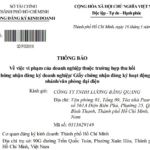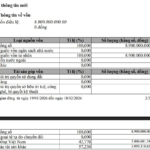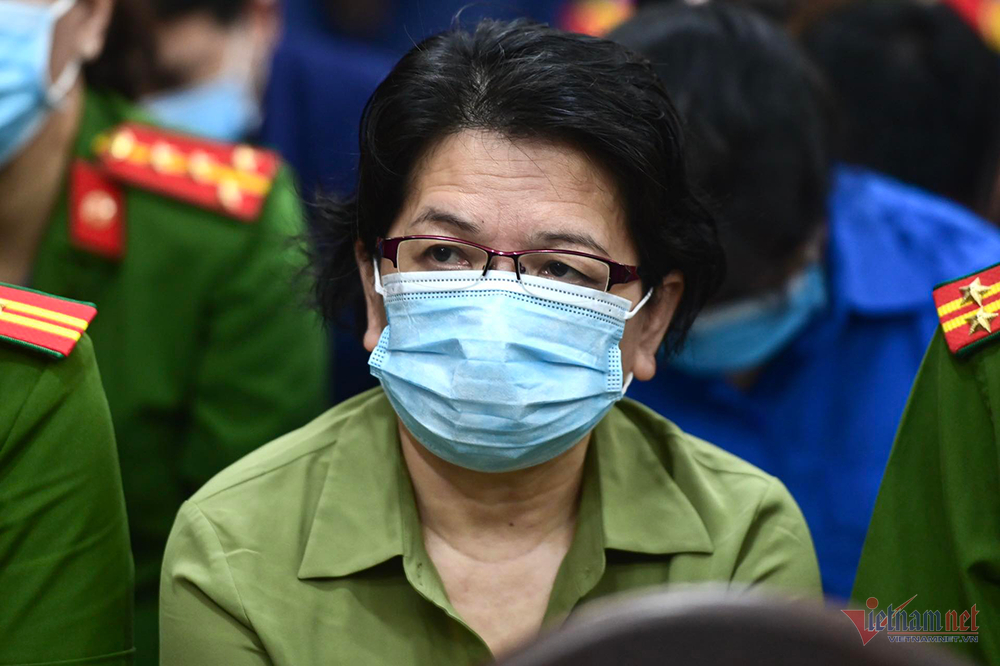“Long-Necked” Waiting for Compensation
Numerous customers who purchased health insurance plans have reported that insurance claims are becoming increasingly challenging, with insurance companies providing various reasons for denying claims. Ms. Hong Tho from Can Tho shared her experience of buying life insurance with an attached health care card for her 3-year-old daughter.
In early 2024, Ms. Tho’s daughter was hospitalized and diagnosed with viral enteritis-induced sore throat with blisters and hand, foot, and mouth disease (HFMD). Ms. Tho arranged for her daughter’s hospital expenses to be covered by insurance, but Insmart Joint Stock Company, authorized by the insurance company to assess insurance payouts, rejected the claim.

Customers have shared the challenges faced in obtaining health insurance compensation. (Illustrative image)
“Insmart stated that my daughter’s illness occurred before she was insured,” Ms. Tho explained. “Specifically, she had previously suffered from sore throat, so Insmart could not determine the scope of insurance coverage and needed to review the previous treatment’s cause and its relation to the current illness.” Ms. Tho had to go through a tedious process of phone calls, discussions, and supplementary paperwork before finally receiving compensation.
“The compensation procedure is cumbersome and exhausting for customers like us,” Ms. Tho shared. “Buying insurance is straightforward, but making a claim is a different story.” Similarly, many customers who purchased annual health insurance plans from non-life insurance companies have faced challenges when making insurance claims. Ms. Q.N. from Hanoi shared her experience of buying health insurance from Bao Minh Insurance Corporation, which included hospitalization and maternity benefits.
However, in May 2024, when she was hospitalized for health exhaustion during pregnancy and diagnosed with nausea by a physician, her compensation claim was denied by the company. “Bao Minh Insurance Corporation cited the reason for rejection as follows: Based on the actual records, the customer was treated for nausea, which is a normal physiological condition for pregnant women and thus not covered by the insurance plan,” Ms. Q.N. explained. “I purchased health insurance to protect myself in case of illness and hospitalization as advised by a doctor, but the insurance company denied my claim, stating that this condition is normal. If it were normal, would anyone need to be hospitalized? I am deeply frustrated by their indifference and lack of responsibility,” she added.
While customers face challenges in the claims process, insurance companies have announced premium increases. Bao Minh Insurance Corporation, for instance, informed its customers of a 30% premium increase in 2024 compared to 2023, while the insurance benefits remained unchanged. The company justified this decision by citing rising medical costs and an increase in the claims ratio.
Currently, health insurance products mainly fall into two categories: health insurance cards sold by non-life insurance companies and health insurance sold by life insurance companies, either separately or in conjunction with life insurance policies. After selling health insurance plans, insurance companies sign agreements with independent assessment companies like Insmart Joint Stock Company. According to Insmart, they are partners in claims assessment for multiple insurance companies.
Health Insurance Premium Revenue Continues to Rise
Data from the Insurance Supervisory Authority (Ministry of Finance) shows that in the first four months of 2024, the total premium revenue of non-life insurance reached VND 26,366 billion, a 10.7% increase compared to the same period in 2023. During this period, health insurance premium revenue is estimated at VND 9,179 billion, accounting for 34.8% of the total non-life insurance revenue and holding the largest proportion. In 2023, health insurance revenue reached VND 23,802 billion, a slight increase of 0.3% compared to the previous year, with a claims ratio of 34.6%.
According to insurance expert Tran Nguyen Dan, short-term health insurance is sold annually. Health insurance is a leading type of insurance, meaning that insurance companies accept lower profits on health insurance to sell more profitable types of insurance, such as construction and property insurance. In the first year of selling group health insurance, companies tend to be more generous with claims but tighten their policies for customers renewing their policies in the second year.
“Customers who purchase health insurance from non-life insurance companies often face high premiums and challenging claims processes,” Mr. Dan observed. “Non-life insurance companies typically use third-party assessors for claims settlement. If customers want to file a complaint about insurance compensation, they have to go through a complex process of suing the insurance company, involving the customer, the insurance seller, and the assessment company.” One of the most common reasons for denying health insurance claims is pre-existing conditions, which are often applied rigidly, leading to many rejected claims. The lengthy and costly process of pursuing compensation can be discouraging for customers.
“The practice of non-life insurance companies making sales easily but creating difficulties for customers during compensation will negatively impact the market and erode customer trust,” Mr. Dan warned. “Meanwhile, independent assessment companies, wanting to maintain their relationships with insurance companies and dependent on payout ratios, may become ‘exclusive’ assessors, causing customers to suffer. Therefore, it is crucial for insurance companies to improve their medical declaration process before selling insurance products,” he recommended.
In the first four months of 2024, health insurance premium revenue is estimated to reach VND 9,179 billion. In 2023, health insurance revenue reached VND 23,802 billion, a slight increase of 0.3% compared to 2022, with a claims ratio of 34.6%.


















